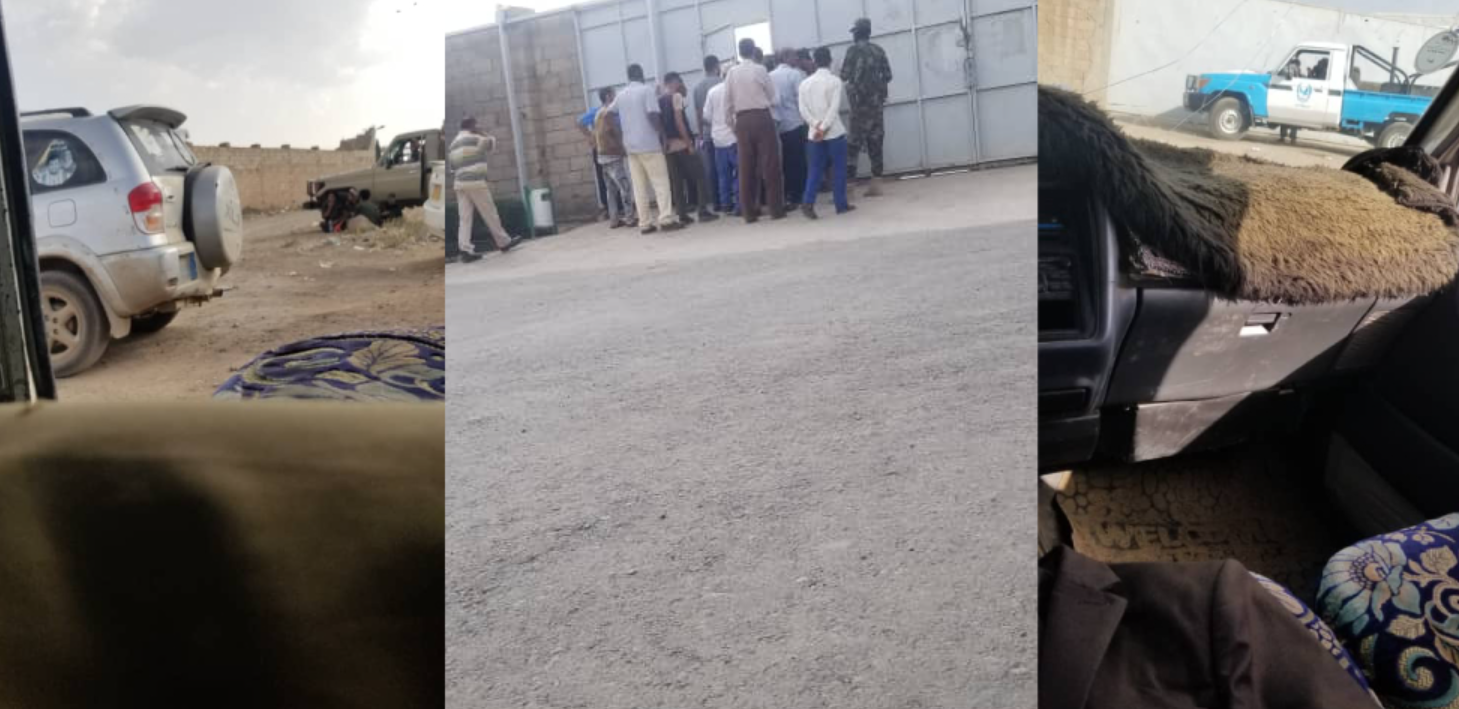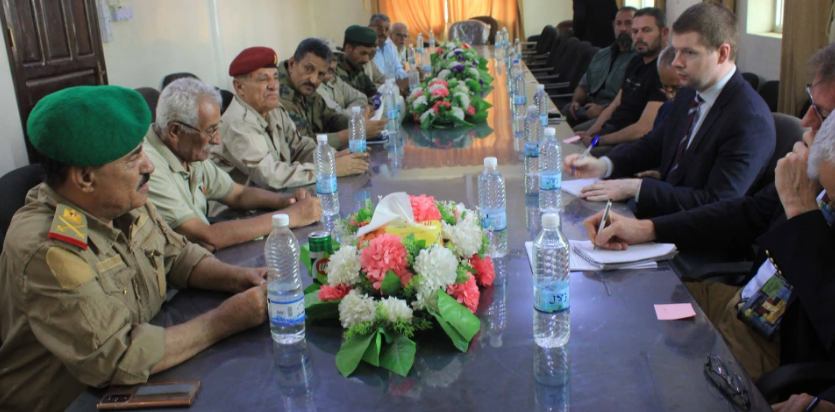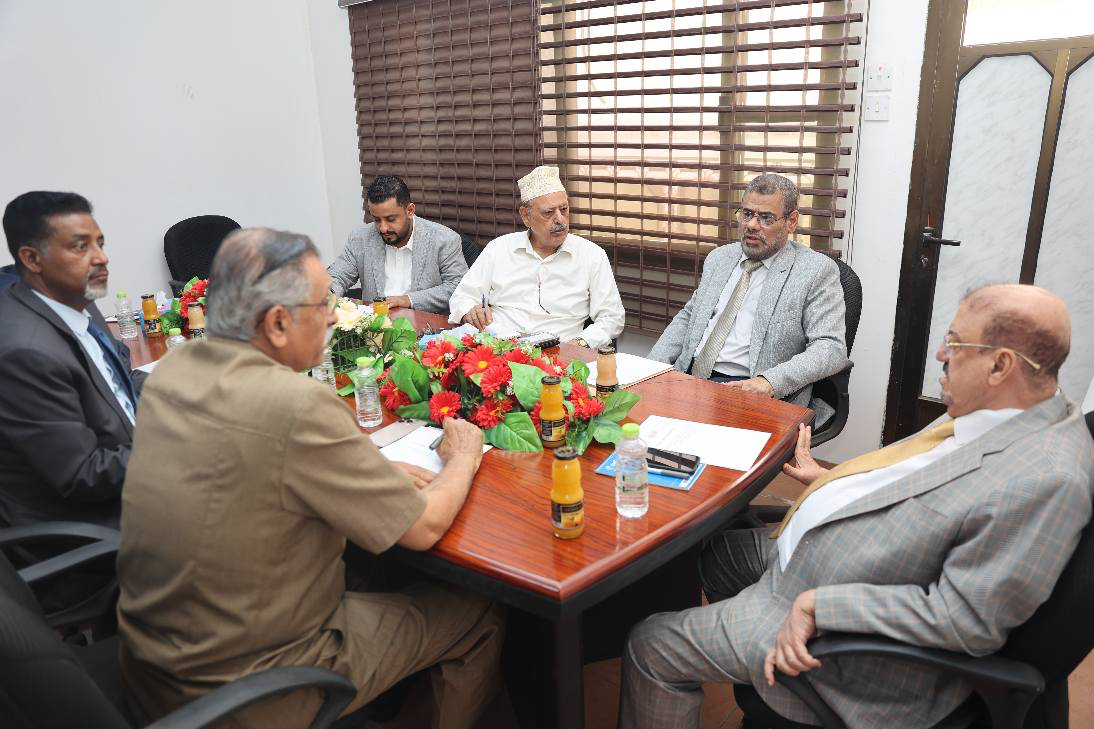
Barran Press
The Houthi group, internationally designated as a terrorist organization, raided two pharmaceutical companies in Sana'a on Sunday, June 9th, 2024, and detained six managers and employees, including a woman, according to the human rights organization SAM for Rights and Freedoms.
SAM stated in a press release, seen by Barran Press, that the Houthis stormed the facilities of the Modern Pharmaceutical Company and the Global Pharmaceutical Manufacturing Company in Beit Azran, Sana'a, as well as branches in the governorates of Amran and Dhamar, under the direction of the new judicial guardian, Saleh Dubesh. The organization described the incident as reflecting the "arbitrary actions and harassment faced by the private sector in Houthi-controlled areas."
Among those detained are Dr. Fahim Al-Khalidi, Deputy General Manager; Mukhtar Al-Makhlafi, Human Resources Manager; Abdullah Sharaf, Sales Manager; Fatima Aishan, Procurement Manager; Engineer Abdulkhaleq Al-Ghouli (arrested on May 31st); Dr. Safwan Al-Agbari; Engineer Abdul Majeed Qashnun, Maintenance Manager at the Global Company; Mohammed Al-Maamari, Fund Manager; and Fatima Aishan.
SAM condemned the Houthi actions, deeming them a form of theft and reflecting their disregard and addiction to "extortion and plunder." The organization asserted that these practices threaten Yemen's economic and health security, exacerbating the suffering of citizens who rely on these companies for medicine and healthcare.
The organization urged the international community to fulfill its responsibility in protecting human rights and pressuring all parties to adhere to international law, creating a safe environment for economic and commercial activities in Yemen.
Sources from the pharmaceutical companies, cited by SAM, stated that the companies hold permits from the Higher Drug Authority under the Ministry of Health and operate legally. They pay taxes, zakat, and the judicial guardian's share, which amounts to between $180,000 and $200,000 annually.
The sources further revealed that the Houthis forced one of the companies to pay profits to four shareholders for the past seven years. In 2022 alone, the Houthis seized $240,000 in profits from these shareholders, representing 13% of the company's total profits.
The sources also reported that in October 2022, when the Houthis appointed Saleh Dubesh as the new judicial guardian, he immediately took possession of the company's server containing its information. The issue with the judicial guardian dates back seven years when a court order was issued. The company's board of directors decided to avoid legal battles and agreed to a 13% share, which was verbally agreed upon with the previous judicial guardian, Saleh Al-Shaer.
However, after the appointment of the new guardian three or four years ago, he issued a new order demanding a higher percentage, which the companies refused. They informed him that if he had any new documents, he should present them.
The sources warned that the closure of the companies and the shutdown of their factories would lead to significant losses. All the products stored in incubators for about a year would be damaged due to the conditions, rendering them unfit for international standards. This would necessitate new studies and the preparation of new samples, resulting in substantial financial losses.
Additionally, the shutdown of the factory and generators would lead to the cessation of the water treatment unit, causing contamination. Rehabilitation and sterilization of the unit would take weeks, if not months, to eliminate the contamination, as water is a crucial raw material in the manufacturing process and is susceptible to contamination if the unit is shut down.
SAM characterized the Houthi actions as illegal and unjustified, representing a serious violation of fundamental human rights, including the property right, as enshrined in national and international laws.
The organization believes that the Houthi group's "plundering policy" under the guise of the "judicial guardian" aligns with the war economy and money laundering, involving deception, theft, extortion, and deliberate violence to seize profitable assets. The looted funds are invested in tradable activities, exploiting labor in seized properties.
SAM expressed its condemnation and solidarity with the detainees, calling on the de facto authorities in Sana'a to lift their hands from the companies and release their employees unconditionally. The organization also demanded that the Houthi group cease its brutal and oppressive policies against the private sector, which have been ongoing for ten years.





